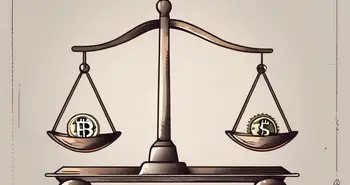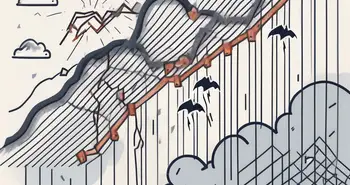The Resource Curse: Why Natural Wealth Can Lead to Economic Downfall

As an expert in the field, I have extensively studied the impact of the resource curse and its far-reaching consequences. In this comprehensive analysis, we will delve into the various aspects of this phenomenon, ranging from its definition and historical overview to its economic, political, social, and environmental implications.
Understanding the Resource Curse
The resource curse, also known as the paradox of plenty, refers to the negative consequences that can arise when a country is blessed with an abundance of natural resources, such as oil, gas, minerals, or timber. Despite the potential economic benefits, many resource-rich countries often experience slower economic growth, increased income inequality, and political instability.
One of the key concepts in understanding the resource curse is the “Dutch disease.” This term describes the economic phenomenon where the exploitation of natural resources leads to the appreciation of a country's currency, making other sectors less competitive and hindering overall economic diversification.
Definition and Key Concepts
In simple terms, the resource curse occurs when a nation's dependence on natural resources becomes a hindrance rather than a blessing. It amplifies economic, political, social, and environmental challenges, ultimately inhibiting sustainable development.
Two important concepts underlying the resource curse are the “resource curse trap” and the “rentier state.” The resource curse trap refers to the cycle of poor governance and mismanagement that perpetuates the negative impact of resource dependency. On the other hand, a rentier state is a term used to describe a country that relies heavily on rent from the extraction of natural resources, rather than fostering a diversified economy.
Historical Overview of the Resource Curse
The resource curse is not a recent phenomenon. Throughout history, numerous resource-rich countries have struggled to effectively manage their natural wealth. Examples include the diamond-rich countries in Africa, such as Sierra Leone and Angola, which experienced prolonged periods of conflict, corruption, and economic stagnation.
Understanding the historical context is crucial in comprehending how the resource curse has evolved and the lessons we can learn from past experiences.
The Economic Implications of the Resource Curse
The resource curse has a profound impact on the economic landscape of resource-rich nations. Despite the potential for economic growth, these countries often face significant challenges that hinder their progress and development.
Effects on Economic Growth
One of the striking consequences of the resource curse is its negative impact on economic growth. Paradoxically, countries with an abundance of natural resources tend to have slower economic growth rates compared to their resource-poor counterparts.
This can be attributed to factors such as the overreliance on a single sector, the volatility of commodity prices, lack of economic diversification, and the Dutch disease effect, which undermines the competitiveness of non-resource sectors.
Income Inequality and the Resource Curse
The resource curse often exacerbates income inequality within a nation. As revenues from natural resources concentrate in the hands of a few, the gap between the rich and the poor widens. This inequality can lead to social unrest, political instability, and hinder long-term sustainable development.
Addressing income inequality is crucial in breaking the cycle of the resource curse and fostering a more inclusive and equitable society.
The Political Consequences of the Resource Curse
The resource curse has far-reaching political implications, shaping the governance frameworks of resource-rich nations and often leading to corruption, conflict, and instability.
Governance and Corruption
One of the most significant challenges faced by resource-rich countries is corrupt governance. The vast revenues generated from natural resources can fuel corruption and breed a culture of rent-seeking and embezzlement. This undermines governance structures, erodes public trust, and diverts funds from crucial social and economic development initiatives.
Efforts to promote transparent and accountable governance are crucial in mitigating the political consequences of the resource curse.
Conflict and Instability
The resource curse is often linked to conflict and political instability. The competition for resource control can give rise to tensions between different groups, leading to civil unrest, insurgencies, and even wars. These conflicts further exacerbate the economic and social challenges faced by resource-rich countries.
Building mechanisms for peaceful resource governance and conflict resolution is essential in transforming the political landscape of such nations.
Social and Environmental Impact of the Resource Curse
The resource curse not only affects the economy and politics but also takes a toll on the social fabric and natural environment of resource-rich countries.
Social Development Challenges
Despite vast resource wealth, many resource-rich nations struggle with significant social development challenges. This includes issues such as poverty, lack of access to quality education and healthcare, and inadequate infrastructure. The resource curse often diverts attention and resources from investing in social development, perpetuating social inequalities.
Promoting social development programs and ensuring equitable distribution of wealth are essential steps in addressing these challenges.
Environmental Degradation and Sustainability Issues
The extraction and exploitation of natural resources can have severe environmental consequences. Irresponsible mining practices, unchecked deforestation, and unsustainable use of water resources are just a few examples of how the resource curse impacts the environment.
Implementing sustainable practices and stringent environmental regulations are pivotal in mitigating the ecological damage inflicted by resource extraction.
Strategies to Mitigate the Resource Curse
While the resource curse presents formidable challenges, there are strategies that can be employed to mitigate its impact and foster sustainable development.
Policy Recommendations
Good governance, transparent policies, and effective institutions are fundamental in tackling the resource curse. Resource-rich countries should prioritize diversifying their economies, investing in human capital, and fostering innovation and entrepreneurship. They should also establish mechanisms to manage resource revenues responsibly, ensuring they are channeled towards sustainable development initiatives.
Role of International Institutions
International institutions play a crucial role in supporting resource-rich countries to overcome the challenges posed by the resource curse. They can provide technical assistance, capacity building, and promote international norms and standards in resource management. Collaboration between governments, civil society, and international partners is essential in promoting lasting change.
My personal advice to resource-rich countries is to learn from the experiences of others, invest in human development, diversify their economies, and foster good governance. By doing so, they can break free from the grips of the resource curse and unleash their true potential for sustainable and inclusive development.
FAQ (Frequently Asked Questions)
What is the resource curse?
The resource curse refers to the negative consequences that occur when a country is rich in natural resources but fails to effectively manage and benefit from them. These consequences include slow economic growth, increased income inequality, political instability, social challenges, and environmental degradation.
Why do resource-rich countries face slow economic growth?
Resource-rich countries often face slow economic growth due to several factors. These include overreliance on a single sector, volatility in commodity prices, lack of economic diversification, and the Dutch disease effect, which hampers the competitiveness of non-resource sectors.
How does the resource curse contribute to income inequality?
The resource curse widens income inequality by concentrating revenues from natural resources in the hands of a few. This creates disparities in wealth distribution, leading to social unrest, political instability, and hampering long-term sustainable development.
Can the resource curse be overcome?
Yes, the resource curse can be mitigated through various strategies. These include promoting good governance, diversifying the economy, investing in social development, implementing sustainable practices, and channeling resource revenues toward long-term development initiatives. Collaboration between governments, international institutions, and civil society is critical in effecting lasting change.
What role do international institutions play in addressing the resource curse?
International institutions play a crucial role in supporting resource-rich countries in overcoming the challenges posed by the resource curse. They provide technical assistance, capacity building, and promote international norms and standards in resource management. By collaborating with international partners, governments can access the necessary expertise and resources to break free from the resource curse.
In conclusion, the resource curse is a complex and multifaceted problem that impacts nations worldwide. However, with the right policies, transparent governance, and sustainable practices, resource-rich countries can navigate their way towards inclusive and resilient development. By learning from past experiences and embracing innovative solutions, we can break the chains of the resource curse and unlock the true potential of these nations for the benefit of their people and the world at large.
As we explore the complexities of the resource curse and the importance of sustainable economic practices, it's clear that innovative solutions are needed to navigate the challenges of global markets. Morpher.com stands at the forefront of this transformation, offering a revolutionary trading platform that empowers individuals to invest in a variety of asset classes with zero fees, infinite liquidity, and the safety of blockchain technology. Embrace the future of trading and take control of your investment journey. Sign Up and Get Your Free Sign Up Bonus today to join a community that's reshaping the world of investing.

Disclaimer: All investments involve risk, and the past performance of a security, industry, sector, market, financial product, trading strategy, or individual’s trading does not guarantee future results or returns. Investors are fully responsible for any investment decisions they make. Such decisions should be based solely on an evaluation of their financial circumstances, investment objectives, risk tolerance, and liquidity needs. This post does not constitute investment advice.

Painless trading for everyone
Hundreds of markets all in one place - Apple, Bitcoin, Gold, Watches, NFTs, Sneakers and so much more.

Painless trading for everyone
Hundreds of markets all in one place - Apple, Bitcoin, Gold, Watches, NFTs, Sneakers and so much more.









